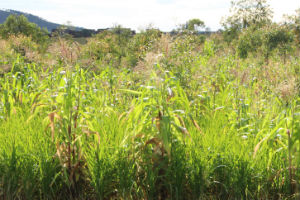 Development of ecological intensification indicators in upland rice agrosystems in Madagascar: predicting the soil microbial loop - Ecological intensification INDicators in rICE agrosystems
Development of ecological intensification indicators in upland rice agrosystems in Madagascar: predicting the soil microbial loop - Ecological intensification INDicators in rICE agrosystems
Rice is the most commonly consumed food on Earth and feed over 3 billion people across the world. In Madagascar, rice is the principal food crop and is being consumed extensively in rural and urban areas. Nutrients, especially phosphorus (P), are the main resources that strongly limit rice crop productivity. By increasing soil nutrient availability, ecological functions based on biological interactions represent potential keys to such agricultural problems.
The objective of INDICE is to identify agronomic and soil descriptors that potentially indicates a major ecological function of terrestrial ecosystems: the soil microbial loop (SML). This process is based on biological interactions occurring in the rhizosphere of plants and significantly increases plant N and P nutrition.
The project has five distinct steps. We first select upland rice systems including a wide contrasting agronomic practices spectrum in Madagascar. We then measure on the field or in the laboratory environmental soil descriptors that can act as relevant indicators of the SML. The third step corresponds to the assessment of the SML using an innovative co-inoculation experiment in microcosms while the fourth step corresponds to the development of a database including all data. The last step is the construction of synthetic SML-indicators and identification of agronomic factors that strongly influence the SML.
The thesis of Patricia Ranoasiroa is carried out within the framework of this project.
Aims
The general objective of this project is to identify and develop single and synthetic indicators based on agronomic and environmental descriptors of a central ecological function in terrestrial ecosystems, the soil microbial loop (SML), in order to support the development of high productivity and sustainable agronomic practices, as well as effective and efficient monitoring of agricultural soil quality in Madagascar.
The SML is based on complex biological interactions occurring in the rhizosphere of plants and significantly increases plant N and P nutrition. Rice systems with practices that optimize this ecological function may maximize their ability to overcome the high nutrients deficiencies met in the tropical soils. Hence, there is clearly a need to develop relevant indicators predicting key ecological functions in a long-term objective to orientate agronomic practices towards optimal ecological intensification.
Date
Janvier 2015 - Octobre 2016
Partners
Madagascar
- Laboratoire des RadioIsotopes (LRI)
- University of Antananarivo, Madagascar
- FOFIFA, Madagascar
- Agrisud International
France
- UPR 115 AIDA (CIRAD), France (Montpellier)
- UMR 951 INNOVATION (CIRAD, INRA, SupAgro), France (Montpellier)
Funding
Agropolis Fondation
Contact
Jean Trap, Eco&Sols, IRD Montpellier
e-mail :






